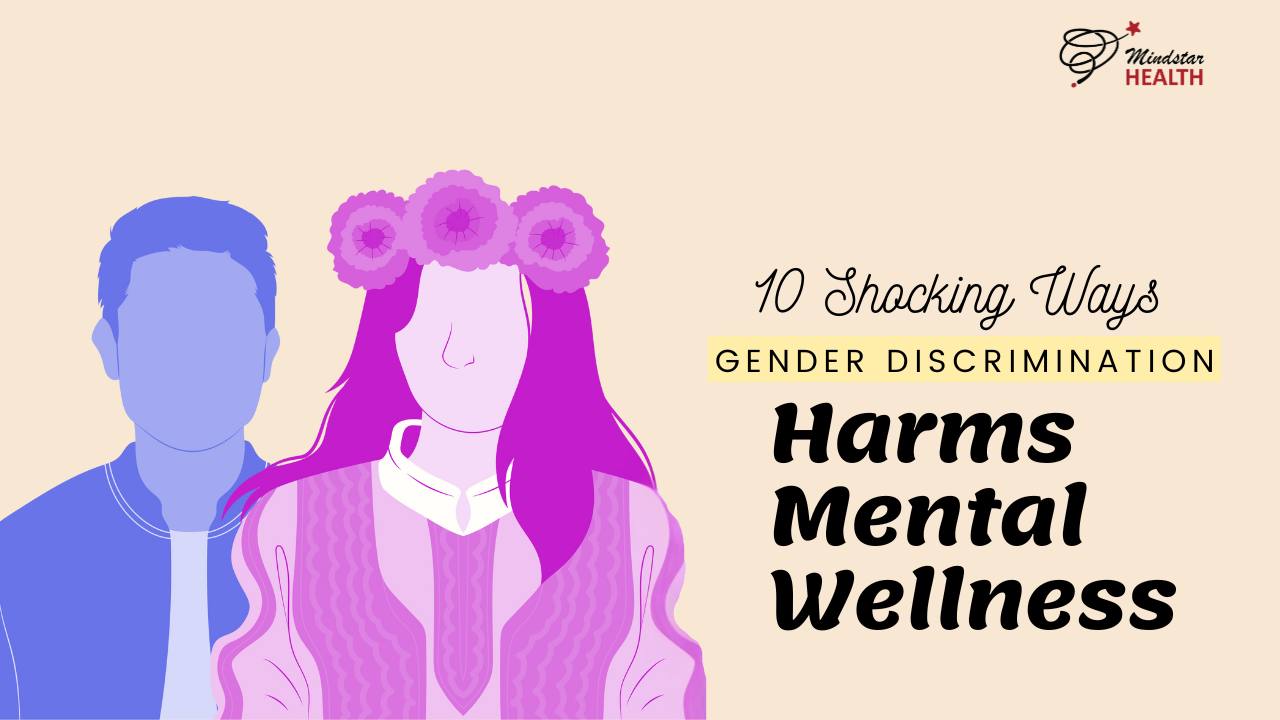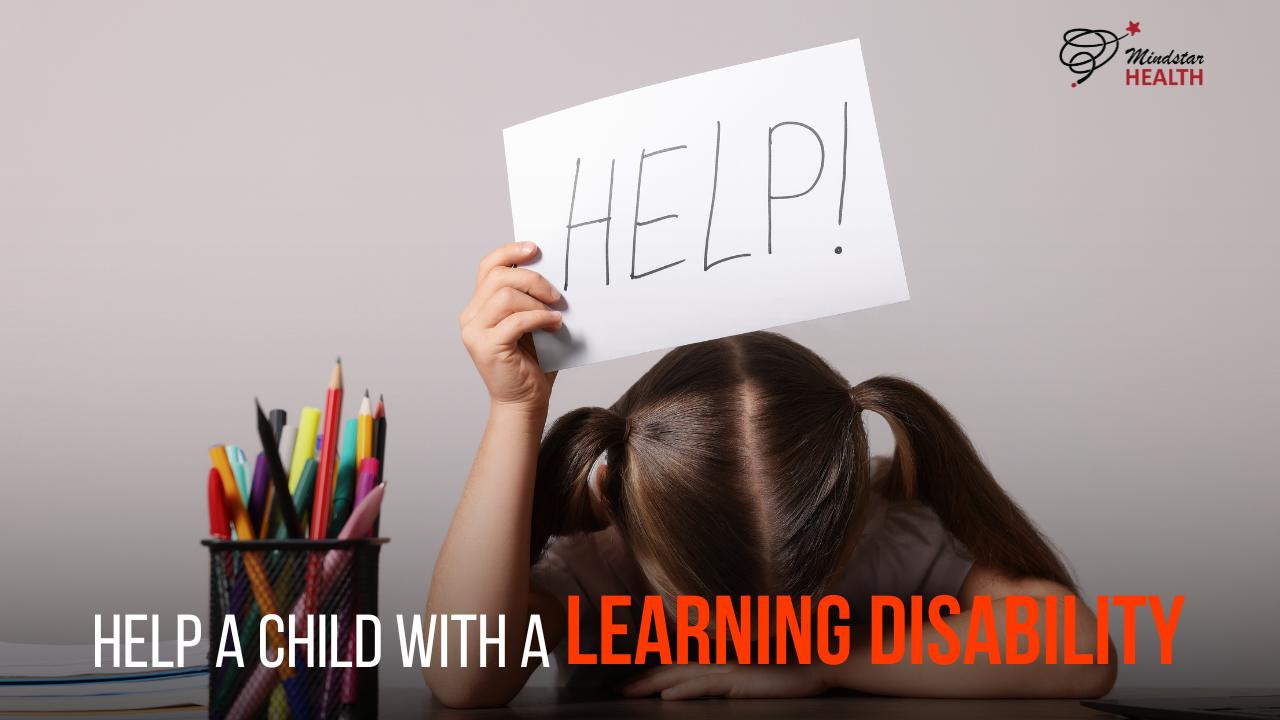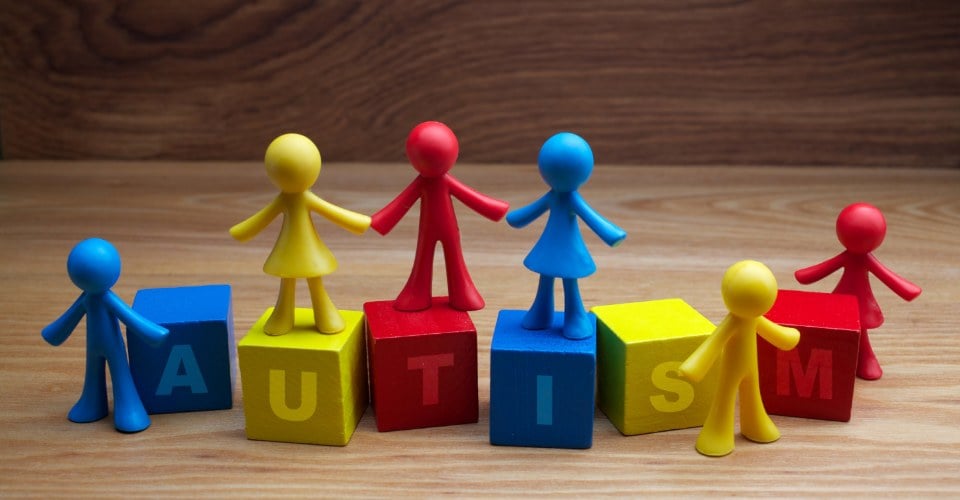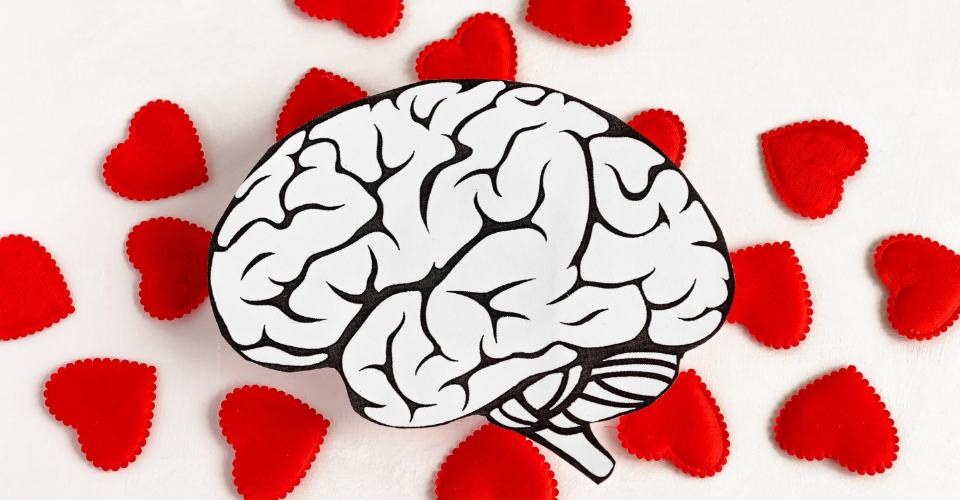Table of Contents
As parents, guardians, and caregivers, we all want the best for our teens. However, sometimes it’s difficult to know when they’re struggling. One day, your teen is energetic, making plans with friends, and excelling in school, but the next, they may become withdrawn, anxious, or seem upset for no apparent reason. Is this just a phase, or could it be a warning sign of something deeper? Teen mental health is more important than ever, especially given the pressures and stress that today’s teens face. In this article, we will explore the early warning signs of mental health struggles in teens, provide insights on how to recognize them, and offer actionable steps to support their mental well-being.
The Pressure of Adolescence: Understanding the Strain
Adolescence is a period of rapid growth and significant change, and this can bring a mix of emotions and challenges. From academic pressure and social media comparisons to physical changes and family dynamics, the stress teens experience today is unlike any other generation before them. According to the American Psychological Association, nearly 1 in 3 teens report feeling persistent sadness or hopelessness, a key indicator of potential mental health issues.
Factors Contributing to Teen Stress
- Academic Pressure: The competition to get into top colleges and universities can lead to significant stress.
- Social Media: Overuse of platforms like Instagram, Snapchat, and TikTok can negatively affect a teen’s self-esteem.
- Bullying and Peer Pressure: Bullying, both in person and online, is still prevalent among teens and can cause long-lasting mental harm.
- Family and Relationship Issues: Teenagers often struggle to navigate relationships, both within their families and with their peers.

Key Warning Signs of Mental Health Struggles in Teens
Adolescence is a time of rapid change, and while it’s normal for teens to experience mood shifts and new behaviors, sometimes these changes can signal deeper mental health struggles. As parents, guardians, or caregivers, it’s important to be able to recognize these signs early, so that intervention can be timely and effective. In this article, we will explore the key warning signs of mental health issues in teens, particularly focusing on teen psychology, mood disorders, and the growing levels of adolescent stress that today’s young people face.
1. Significant Changes in Mood or Behavior
Teenagers are known for their mood swings, which can often be attributed to hormonal changes. However, if these mood swings become more extreme, last longer, or occur more frequently, they may be an indication of underlying mood disorders such as depression or anxiety. For example, a normally upbeat teen who suddenly becomes consistently irritable, angry, or withdrawn could be struggling with mental health issues. This shift in behavior often includes feelings of sadness or frustration that seem disproportionate to the situation, suggesting that the teen may be dealing with more than typical adolescent emotional turmoil.
It’s important to pay attention to whether these mood changes affect daily life, including social interactions and school performance. Teen psychology suggests that untreated mood disorders can interfere with a teen’s ability to engage in normal activities and relationships, making early recognition crucial.
2. Withdrawal from Social Interactions
One of the most common warning signs of mental health issues in teens is withdrawal from previously enjoyed social activities. Teens typically experience peer pressure and social challenges as part of growing up, but when a teen consistently isolates themselves from family and friends, it can be a cause for concern. Social withdrawal is often associated with depression or social anxiety, both of which can be exacerbated by the stress of adolescence.
When teens avoid socializing, skip out on family events, or reject invitations from their closest friends, it signals that they may be struggling internally. This behavior can be a reflection of how adolescent stress is manifesting emotionally, as teens often feel overwhelmed by their social, academic, and personal pressures. As parents, it’s vital to create a supportive environment where teens feel comfortable expressing their feelings without fear of judgment.
3. Changes in Sleeping or Eating Patterns
Mental health struggles in teens often lead to noticeable changes in eating and sleeping patterns, both of which are closely linked to mood disorders. If your teen is staying up late regularly, having trouble falling asleep, or oversleeping, these could be signs of depression or anxiety. Likewise, sudden changes in appetite, such as eating too much or too little, can also indicate the presence of emotional distress.
For example, some teens may turn to food as a coping mechanism for stress, engaging in binge eating or restrictive eating patterns, both of which can lead to the development of eating disorders. On the other hand, others may lose interest in food altogether. Recognizing these changes early and discussing them with your teen can prevent further emotional deterioration and open up the door for professional support.
4. Struggles in School Performance
A significant drop in school performance can be a clear indicator that a teen is dealing with more than just academic challenges. If your teen, who once excelled in school, begins to miss assignments, perform poorly on tests, or express a lack of motivation to study, it may signal an underlying mood disorder or heightened adolescent stress.
Stress related to school can often trigger or amplify mental health issues, as teens feel pressured to meet high academic standards or compete for college admissions. It’s important to recognize that teen psychology reveals that academic struggles are not always linked to a lack of ability, but rather to emotional or psychological difficulties that impact concentration and motivation. By addressing these underlying issues early on, you can help your teen regain a sense of balance and focus.
5. Increased Anxiety or Worries
It’s common for teens to worry about their future, social status, or academic success. However, when these worries become all-consuming or disproportionate, they may be signs of generalized anxiety disorder (GAD) or panic attacks. If your teen is constantly anxious, worrying excessively about everyday situations, or showing physical signs of anxiety (such as trembling or sweating), it could indicate a deeper emotional struggle.
Anxiety can be triggered by many factors, including social pressures, family expectations, or personal challenges. Adolescent stress related to these issues can cause teens to feel overwhelmed and helpless. Early intervention through therapy or counseling can help alleviate some of the anxiety and teach coping strategies to manage stress in a healthier way.
6. Risky Behaviors or Substance Abuse
As teens navigate the complexities of growing up, some may turn to risky behaviors or substances as a way to cope with their emotions. Substance abuse, self-harm, or other dangerous behaviors can be a sign of untreated emotional distress or mood disorders. While experimentation with substances may be common during adolescence, consistent use or escalation in risky behaviors is a serious warning sign.
Teens often engage in these behaviors to numb feelings of sadness, stress, or anxiety, and this can exacerbate their mental health struggles. Parents should take note of any changes in behavior, such as secretive actions, a sudden interest in substance use, or physical signs of self-harm. If you notice these behaviors, it’s crucial to seek professional help immediately to address the root causes and provide your teen with the necessary support.
7. Unexplained Physical Complaints
Sometimes, the signs of mental health issues are not immediately visible in the form of emotional or behavioral changes. Instead, teens may express their distress through physical complaints. Headaches, stomachaches, and other bodily symptoms can often be linked to stress or mood disorders. Teens may not have the language or emotional vocabulary to express what they are feeling, so they may complain about physical pain instead.
In these cases, it’s important to consider the possibility of an emotional cause behind the symptoms. For example, studies show that adolescent stress can lead to psychosomatic symptoms, where physical discomfort arises due to psychological distress. If your teen frequently complains of physical ailments without a medical cause, it may be a sign that they need additional emotional support and mental health care.
Recognizing the early warning signs of mental health struggles in teens is crucial to ensuring they receive the help and support they need. While adolescence can be a turbulent time, it’s important to differentiate between typical teen behavior and signs of mood disorders or adolescent stress that require intervention. By staying alert to changes in behavior, emotions, and physical well-being, we can help our teens navigate this challenging period with the care and guidance they need to thrive. Always approach these signs with empathy and seek professional help when needed to address the underlying issues.

Common Mental Health Conditions in Teens
The mental health challenges teens face are complex and can be influenced by a variety of factors such as biological changes, environmental stressors, and societal pressures. These conditions often manifest in ways that may look different from adults, especially due to the rapid emotional and psychological development during adolescence. Recognizing the signs early is crucial in providing the support that teens need. Let’s explore some of the most common mental health conditions affecting teens, using teen psychology, mood disorders, and adolescent stress as key frameworks to understand the underlying causes and manifestations.
Anxiety Disorders
Anxiety disorders are among the most prevalent mental health conditions in teens, affecting approximately 9.5% of adolescents. These disorders often begin in childhood or early adolescence and may worsen during the teenage years due to the pressures of school, social expectations, and developmental changes.
- Chronic worry: Teens with anxiety may experience constant, irrational worry about their future, school performance, and social relationships.
- Panic attacks: These sudden, intense episodes of fear or discomfort can be overwhelming, leading to physical symptoms like rapid heartbeat, dizziness, and chest tightness.
- Social anxiety: Many teens with anxiety feel nervous or self-conscious in social situations, making it difficult to engage with peers or participate in group activities.
Anxiety can significantly impact daily life, leading to academic struggles, social withdrawal, and even physical symptoms like headaches and stomachaches. It’s essential to pay attention to warning signs of anxiety, as untreated anxiety can escalate and lead to depression or other mood disorders.
Depression
Approximately 4.5% of teens experience depression, a serious mood disorder that goes beyond feeling “down” or “sad.” For teens, depression can often manifest as irritability, anger, and a withdrawal from usual activities and social interactions. While depression in adults is often marked by prolonged sadness or hopelessness, teens may show more outward signs of frustration or apathy.
- Irritability and anger: Teens with depression may become easily frustrated, lash out at others, or seem perpetually upset, even in situations that wouldn’t normally cause strong emotions.
- Social withdrawal: A teen who once enjoyed hanging out with friends may become reclusive and stop attending social events or extracurricular activities.
- Loss of interest in hobbies: Teens with depression may lose interest in activities they once found enjoyable, such as playing sports or hanging out with friends.
Depression in teens is linked to a range of environmental and biological factors, including adolescent stress, hormonal changes, and struggles with identity. If depression goes untreated, it can lead to self-harm, substance abuse, or even suicidal thoughts.

ADHD (Attention Deficit Hyperactivity Disorder)
Attention Deficit Hyperactivity Disorder (ADHD) affects nearly 10% of children and teens, and it is more than just an issue of inattention. ADHD is characterized by a persistent pattern of inattention, hyperactivity, and impulsivity that interferes with daily life, including school performance and social interactions.
- Inattention: Teens with ADHD may struggle to stay focused in class, forget homework assignments, or find it hard to organize tasks.
- Hyperactivity: They may have difficulty sitting still, frequently move around, or talk excessively in situations where quiet behavior is expected.
- Impulsivity: Teens with ADHD may act without thinking, interrupt conversations, or make decisions without fully considering the consequences.
While ADHD is a neurodevelopmental condition, its impact on teen psychology can make it challenging for teens to manage adolescent stress, especially in academic and social settings. The symptoms of ADHD can often overlap with anxiety or depression, making it important to get a proper diagnosis and tailored treatment plan.
Eating Disorders
Eating disorders like anorexia nervosa, bulimia nervosa, and binge eating disorder are less common but still affect a significant number of teens. These disorders are often rooted in teen psychology, with societal pressures around body image, self-esteem, and perfectionism contributing to their development.
- Anorexia nervosa: Characterized by extreme weight loss due to restricting food intake, anorexia is often driven by a distorted body image and an intense fear of gaining weight.
- Bulimia nervosa: Teens with bulimia may engage in binge eating followed by purging behaviors, such as vomiting or excessive exercise, to prevent weight gain.
- Binge eating disorder: Unlike bulimia, teens with binge eating disorder consume large amounts of food without purging, often as a way to cope with stress or emotions.
Eating disorders are closely linked to both mood disorders and adolescent stress, as they often arise from attempts to control emotions or manage overwhelming situations. They can have severe physical and psychological consequences, including malnutrition, depression, and self-esteem issues.
Recognizing the Signs and Seeking Help
As we’ve discussed, teen mental health challenges can take many forms, from mood disorders like depression to anxiety and eating disorders. It’s important to stay vigilant for warning signs that may indicate your teen is struggling, including drastic changes in behavior, mood, or habits. Identifying these signs early can help you connect with mental health professionals who can provide the necessary support and treatment.
When teens face stress, their mental health is impacted not only by external factors but by their teen psychology, which is still developing. Providing an open, supportive environment where your teen feels comfortable discussing their emotions is crucial in mitigating the effects of these disorders.

How to Support Teens with Mental Health Conditions
Supporting a teen who is dealing with mental health struggles requires a combination of understanding, patience, and proactive care. Here are some ways to provide effective support:
- Create a safe space for conversation: Teens are more likely to open up about their mental health if they feel they can talk without fear of judgment or punishment.
- Encourage healthy coping mechanisms: Teach your teen healthy ways to manage stress, such as journaling, exercising, or practicing mindfulness.
- Seek professional help: If the signs of a mental health condition are present, don’t hesitate to contact a mental health professional. Therapy and, in some cases, medication can help teens manage symptoms and improve their quality of life.
- Educate yourself and your teen: Understanding mental health conditions, including teen psychology, is vital in providing appropriate support. The more informed you are, the better you can recognize signs of distress and offer meaningful help.
Understanding and supporting teen mental health is a shared responsibility among caregivers, educators, and healthcare professionals. By recognizing the warning signs of conditions such as anxiety, depression, ADHD, and eating disorders, we can help teens navigate adolescent stress and improve their emotional well-being. Always remember that early intervention is key, and your teen deserves the help and support they need to thrive.
How to Support Your Teen’s Mental Health
Now that we understand how to recognize the signs of mental health issues in teens, how can we best support them?
Open Communication
Create an environment where your teen feels comfortable discussing their feelings. Let them know that they are not alone, and that it’s okay to ask for help when they need it.
Encourage Healthy Habits
Ensure that your teen is engaging in regular physical activity, eating nutritious foods, and getting enough sleep. These habits have a profound impact on mental health.
Professional Help
In many cases, professional intervention is necessary. A mental health professional can help diagnose any underlying conditions and provide the necessary treatment, such as therapy or medication.
Key Takeaways
- Teen mental health is an ongoing challenge, with factors such as academic pressure, social media, and bullying contributing to stress.
- The warning signs of mental health struggles include mood changes, withdrawal, changes in behavior, and physical complaints.
- Common conditions affecting teens include anxiety, depression, ADHD, and eating disorders.
- Providing emotional support, fostering open communication, and seeking professional help are crucial in supporting your teen’s mental well-being.
At a Glance
- Warning Signs of Teen Mental Health Issues: Mood changes, withdrawal, academic struggles, and more.
- Common Teen Conditions: Anxiety, depression, ADHD, and eating disorders.
- How to Help: Foster open communication, encourage healthy habits, and seek professional help if needed.
FAQs
Q1: How can I start a conversation with my teen about mental health?
Approach the conversation with empathy. Ask about their day, show interest in their feelings, and emphasize that you’re there to listen without judgment.
Q2: Is it normal for teens to have mood swings?
Yes, mood swings are common during adolescence due to hormonal changes. However, if the mood swings are extreme or persistent, it might indicate a mental health concern.
Q3: When should I seek professional help for my teen?
If your teen exhibits consistent signs of distress, such as withdrawal, risky behaviors, or significant changes in mood or school performance, it’s time to seek professional help.
Conclusion
Teen mental health is a complex and pressing issue, but by recognizing the early warning signs, we can intervene and provide the necessary support. As we move forward, it’s essential to maintain open lines of communication with our teens and encourage positive mental health practices. With the right approach and resources, we can help our teens navigate the challenges of adolescence and build resilience for the future.






















Leave a Reply
You must be logged in to post a comment.